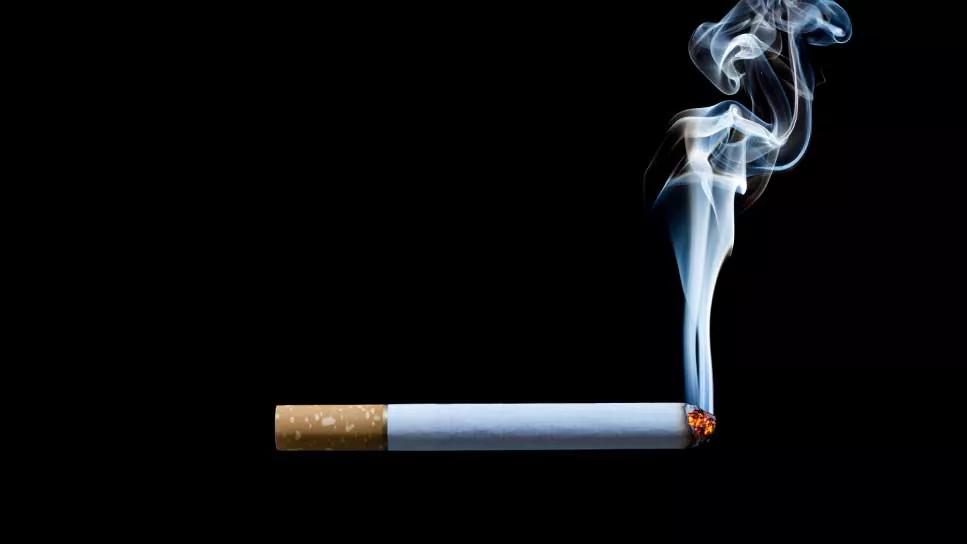Even only a couple cigarettes a day can lead to potentially deadly lung diseases like COPD and emphysema

Image content: This image is available to view online.
View image online (https://assets.clevelandclinic.org/transform/3070d565-a777-4c1d-aff2-cab3a1f83ed6/Light-Smoking-Affects-587213412-967x544-1_jpg)
lit cigarette floating in black background
Think there’s no harm in just a cigarette here and there? Think again.
Advertisement
Cleveland Clinic is a non-profit academic medical center. Advertising on our site helps support our mission. We do not endorse non-Cleveland Clinic products or services. Policy
Even light smoking runs an increased risk of developing potentially deadly chronic lung diseases like emphysema and chronic obstructive pulmonary disease (COPD).
Add those respiratory issues (as well as lung cancer) to the long list of reasons why cigarette smoking ranks as the No. 1 cause of preventable disease, disability and death in the United States and the world.
Let’s take a closer look at how smoking harms your lungs with pulmonologist Humberto Choi, MD — plus steps you can take to reverse the damage. (SPOILER ALERT: A move toward better health involves the word “quit.”)
Chronic lung disease isn’t just one single type of respiratory disease. Think of it more as an umbrella term covering an assortment of conditions that prevent your lungs from working the way they should.
Common types of chronic lung disease include:
Advertisement
Chronic lung disease can be traced to many causes, but smoking tops the list. Others include environmental factors (such as poor air quality, asbestos and second-hand smoke), infections and even genetics.
Breathing in chemicals certainly sounds bad for your lungs, right? Well, consider this: Lighting up a cigarette and taking a puff releases thousands of chemicals, many of which carry a toxic designation.
Chemicals in cigarettes can irritate and damage your airways and lungs, says Dr. Choi. Research shows that smoking just a few cigarettes a day can cause immense harm over time.
“It’s a misconception to think that smoking very lightly, just one or two cigarettes a day, could somehow be a safe practice,” states Dr. Choi. “There’s a body of evidence showing that it is not.”
The cumulative effect of smoking can lead to noticeable changes in your breathing and lung health, including:
If you smoke and are worried about getting chronic lung disease, here’s your best solution: Quit smoking. It’s really that simple. In fact, research shows that people who heavily smoked but kick the habit have a lower risk of lung disease than people who currently smoke lightly.
“Quitting smoking at any point in life can lower a person’s chance of developing chronic lung disease,” emphasizes Dr. Choi. “It is never too late to quit.”
Within three days of quitting smoking, breathing typically becomes easier. Chronic coughing may ease up after a few months, too, as the cilia (small hairs) in your airways gradually begin to regrow. (Learn more health benefits that come when you stop smoking.)
Talk to a healthcare provider about your options for a smoking cessation program.
Unfortunately, the answer is no. Years or decades of abusing your lungs can’t just be erased. Some damage will be lasting.
But that doesn’t mean chronic lung disease can’t be managed for better quality of life, says Dr. Choi. Various treatment options can help your lungs. Lifestyle changes, such as quitting smoking, can prevent additional damage and allow for some recovery.
Advertisement

Sign up for our Health Essentials emails for expert guidance on nutrition, fitness, sleep, skin care and more.
Learn more about our editorial process.
Advertisement
Vaping exposes you to thousands of chemicals, including many that are known to cause cancer and lung disease
Smoking can make symptoms from cancer treatment worse, and can even make treatments less effective
From dental diseases to cardiovascular problems, the harmful effects of smoking hookah have plenty of downsides for your health
Your risk goes down once you quit, but you may still need a lung cancer screening
Cigarettes increase your risk of developing the condition and worsening its effects
Health benefits start within 20 minutes and continue to grow for years after
Each comes with substantial health risks and should be avoided
Smoking and vaping deplete oxygen-rich blood that you need for endurance and fitness
Although it could be used as a moisturizer, this new trend is not recommended
Communicating clear limits helps protect your time, energy and emotional well-being
High cholesterol can be genetic, but testing and treatment can lower your heart disease risk